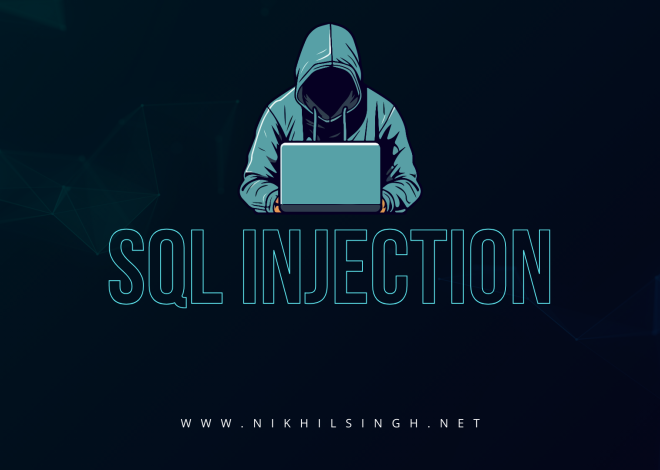
Digital Arrest in India: Legal Framework, Cases, and Emerging Concerns
Contents
- 1 Introduction: Digital Arrest In India
- 2 What is a Digital Arrest?
- 3 Legal Framework Governing Digital Arrest in India
- 4 Major Cases of Digital Arrest in India
- 5 Challenges in Implementing: Digital Arrests In India
- 6 Role of Social Media Platforms: A Digital Arrest In India
- 7 Conclusion: A Digital Arrest In India
Introduction: Digital Arrest In India
In an era where digital platforms have become an intrinsic part of daily life, crimes committed over the internet are a growing concern. From cyberbullying to data theft, India has seen a significant increase in digital crimes. With this rise, a new legal phenomenon known as digital arrest has surfaced. This term refers to the arrest of individuals for online offenses, ranging from sharing objectionable content to cyber fraud. As internet penetration deepens across the country, legal frameworks are adapting to regulate online spaces, and the concept of digital arrests is evolving accordingly.
What is a Digital Arrest?
A digital arrest, also known as a cyber arrest, refers to the legal apprehension of individuals for crimes committed in the digital space. These crimes can involve hacking, data breaches, cyberstalking, online harassment, defamation, or spreading misinformation. Unlike conventional arrests, digital arrests often involve significant collaboration between law enforcement agencies and technical experts to track and apprehend offenders.
Legal Framework Governing Digital Arrest in India
India’s legal system has gradually evolved to tackle cybercrimes. The Information Technology (IT) Act, of 2000, is the primary legislation governing digital crimes. The Indian Penal Code (IPC) also addresses offenses that may occur digitally, such as defamation or harassment, in cyberspace.
Key provisions that enable digital arrests in India include:
- Section 66A (now struck down by the Supreme Court): Earlier, this section of the IT Act allowed for the arrest of individuals for sending offensive or menacing communications via electronic mediums. However, in 2015, the Supreme Court declared it unconstitutional, as it violated the right to freedom of speech under Article 19(1)(a) of the Indian Constitution.
- Section 66B to 66E: These sections pertain to penalties for offenses like receiving stolen computer resources, identity theft, and violations of privacy.
- Section 67 and 67A: These sections deal with publishing or transmitting obscene content in electronic form.
- Section 69A: This allows for the blocking of public access to any information in the interest of national security, public order, or preventing incitement to an offense. It has been used in cases involving social media platforms.
Although these laws form the backbone of digital arrest processes in India, the legal environment is constantly evolving in response to new cyber threats.
Major Cases of Digital Arrest in India
Several cases highlight the growing use of digital arrests to counteract cybercrimes in India. Here are some prominent examples:
1. Arrest for Online Harassment – Pune Cyberstalking Case
In 2017, a Pune-based woman lodged a complaint after being harassed and stalked on social media. The accused, a former acquaintance, was sending her offensive messages and posting derogatory remarks online. Following the investigation, the Pune Cyber Cell arrested the man under various sections of the IT Act and IPC. The case highlighted how law enforcement is increasingly cracking down on cyberstalking, an often underreported crime.
This arrest showed that online harassment can lead to severe legal consequences, and victims are encouraged to report such incidents, which were previously perceived as being difficult to act upon.
2. Online Misinformation and Rumor Mongering – Bengaluru 2020 Riots
In 2020, Bengaluru witnessed violent riots triggered by an allegedly inflammatory Facebook post. The police arrested over 200 individuals, including the person who shared the post. Digital forensics played a vital role in identifying the original source of the post, which incited communal tension.
This case highlights the broader issue of misinformation spreading rapidly online, leading to real-world consequences. Law enforcement agencies had to act swiftly to prevent further violence, leading to digital arrests of individuals accused of inciting unrest through social media.
3. Defamation on Social Media – Republic TV Anchor Arnab Goswami’s Case
In 2020, Arnab Goswami, a well-known news anchor in India, was arrested in connection with a defamation case related to his on-air statements and social media posts. Though initially the arrest focused on an abetment to suicide charge, the broader case involved defamation over digital platforms.
This case was significant because it raised concerns over freedom of speech versus accountability for statements made on social media. The arrest demonstrated that prominent figures could also be held accountable for their digital actions, reflecting a growing trend of scrutinizing online behavior, especially in high-profile cases.
4. Social Media Trolling and Hate Speech – Arrest of Political Activists
Several political activists and social media influencers have faced digital arrests for their posts, tweets, and online commentary that allegedly contained hate speech or offensive remarks. In 2021, several people were arrested for tweeting about controversial farmers’ protests in India, leading to accusations of either inciting violence or spreading false information.
For example, activist Disha Ravi was arrested for allegedly creating and sharing a toolkit related to the protests, which the government claimed incited unrest. Although the charges were contested and she was granted bail, the case highlighted how digital arrests can be used to clamp down on online activism, raising questions about the fine line between freedom of speech and incitement of violence.
Challenges in Implementing: Digital Arrests In India
While digital arrests are increasingly common, there are several challenges that law enforcement and the judiciary face in dealing with cybercrimes:
1. Jurisdictional Issues
Cybercrimes often transcend geographical boundaries. For instance, a crime committed by a person sitting in one country can affect individuals in another country. Indian law enforcement agencies face hurdles in tracking down offenders, especially when they operate outside India’s jurisdiction. Cooperation with international agencies is required, but it can be a lengthy and complex process.
2. Lack of Technical Expertise
Digital crimes are often complex and require a high level of technical expertise. Indian law enforcement agencies are still in the process of building their capacity in terms of personnel trained in cyber forensics, data recovery, and encryption.
3. Privacy Concerns
There is a fine balance between protecting privacy and ensuring security. In many cases of digital arrests, law enforcement agencies are granted access to private data and communications. This raises concerns about surveillance and potential misuse of personal data, especially in politically sensitive cases.
4. Misuse of Laws
The biggest concern surrounding digital arrests is the potential misuse of laws. The now-defunct Section 66A of the IT Act, for example, was widely criticized for being used to stifle free speech. Similarly, provisions like Section 69A, which allow for the blocking of online content, can be exploited to suppress dissent and control narratives.
Role of Social Media Platforms: A Digital Arrest In India
Social media platforms such as Facebook, Twitter, and WhatsApp play a crucial role in facilitating or preventing digital arrests. While these platforms are often the medium through which crimes like defamation, hate speech, or online harassment take place, they are also increasingly cooperating with law enforcement agencies to identify and apprehend offenders.
For instance, after several mob lynchings in India that were triggered by rumors spread on WhatsApp, the government mandated that platforms take responsibility for the content shared on them. As a result, companies like WhatsApp introduced new features like forwarding limits and labeling forwarded messages to curb the spread of misinformation.
However, social media platforms are also under scrutiny for the way they handle user data. There are ongoing debates on the extent to which these platforms should be regulated and held accountable for content shared on their platforms.
Conclusion: A Digital Arrest In India
Digital arrests in India are a growing aspect of law enforcement in India, driven by the increasing prevalence of cybercrimes. As more individuals take to online platforms for expression, communication, and commerce, the need for a robust legal framework becomes imperative. While laws like the IT Act have helped shape the country’s approach to digital crimes, there are ongoing concerns about privacy, jurisdiction, and potential misuse of power.
As the landscape of cybercrime continues to evolve, so too must India’s legal responses. Balancing the right to freedom of speech with the need to curb online criminal activities is a tightrope that both the judiciary and law enforcement must walk carefully. At the same time, improving technical expertise and ensuring international cooperation will be critical in making digital arrests more efficient and just. As cases like those mentioned above demonstrate, digital arrest is not just a technical legal process—it is a reflection of how modern society grapples with the challenges of living in a hyperconnected world.
Also, read SQL Injection Attack: The Silent Assassin
Follow the official LinkedIn profile for more future updates, Nikhil Singh.








I want to show you one exclusive program called (BTC PROFIT SEARCH AND MINING PHRASES), which can make you a rich man!
This program searches for Bitcoin wallets with a balance, and tries to find a secret phrase for them to get full access to the lost wallet!
Run the program and wait, and in order to increase your chances, install the program on all computers available to you, at work, with your friends, with your relatives, you can also ask your classmates to use the program, so your chances will increase tenfold!
Remember the more computers you use, the higher your chances of getting the treasure!
DOWNLOAD FOR FREE
Telegram:
https://t.me/btc_profit_search
Discover the secrets of effective marketing: precise contact information! I can help you gather it all. https://telegra.ph/Personalized-Contact-Data-Extraction-from-Google-Maps-10-03 (or telegram: @chamerion)
Hello!
Good cheer to all on this beautiful day!!!!!
Good luck 🙂
Доброго дня тебе, помнишь скидывал мне статью на тему общества?я пишу в том же направлении, хотелось бы вместе сделать сайт знакомств, виделись где, рядом с домом которые, 23 года Мила, Кенинсбург, найди по фотке, дом с балконом.
İstanbul da kaçak su tespiti Kadıköy’deki ofisime su kaçağı tespiti için çağırdım, sonuç çok hızlıydı. https://trngamers.co.uk/ustaelektrikci
Küçükçekmece su kaçağı tespiti Kozyatağı su kaçağı tespiti: Kozyatağı’nda su kaçağını hızlıca buluyoruz. https://twixxor.com/ustaelektrikci
What’s up, buddy? It’s always a joy to cross paths with you, pal.
It’s shaping up to look like a valuable addition for your project Ferrous metal reusing
Goodbye for now, and may your spirit soar
Yo, what’s up, buddy? I’m pumped we could chill for a bit.
This appears to be a beneficial addition for your site Copper scrap environmental certifications
Keep the good vibes, and may your spirit soar
Good afternoon!
I ask you to help in the development of a young website!
Follow the link and scroll through the pages for 1-2 minutes.
If you don’t want to help, delete this message.
Have a good day!
https://dzen.ru/marketplacesrf
Hello.
Good cheer to all on this beautiful day!!!!!
Good luck 🙂
Hi there, pal! I’m delighted we could spend some time together.
While not definitive, it’s showing positive signs as a potential addition to your project E-consultation doctor mental health evaluation services
Ciao, and may your journey be blessed with joy
Kumusta, my friend! I’m stoked to say hello, let’s be buds, okay?
Tackling unfamiliar subjects can yield unexpected wisdom Copper waste management
God bless and goodbye, may joy be your guide